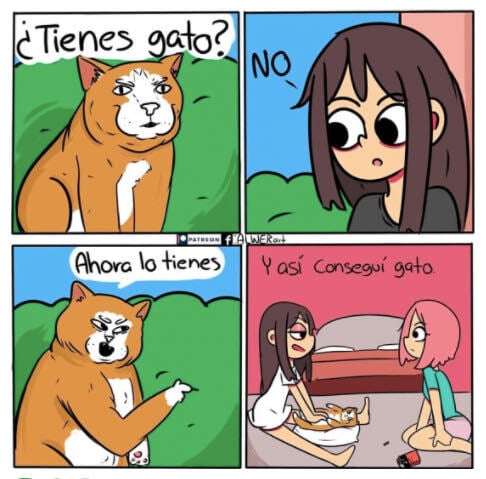this post was submitted on 24 Jan 2024
568 points (93.6% liked)
Comic Strips
12479 readers
3316 users here now
Comic Strips is a community for those who love comic stories.
The rules are simple:
- The post can be a single image, an image gallery, or a link to a specific comic hosted on another site (the author's website, for instance).
- The comic must be a complete story.
- If it is an external link, it must be to a specific story, not to the root of the site.
- You may post comics from others or your own.
- If you are posting a comic of your own, a maximum of one per week is allowed (I know, your comics are great, but this rule helps avoid spam).
- The comic can be in any language, but if it's not in English, OP must include an English translation in the post's 'body' field (note: you don't need to select a specific language when posting a comic).
- Politeness.
- Adult content is not allowed. This community aims to be fun for people of all ages.
Web of links
- !linuxmemes@lemmy.world: "I use Arch btw"
- !memes@lemmy.world: memes (you don't say!)
founded 1 year ago
MODERATORS
you are viewing a single comment's thread
view the rest of the comments
view the rest of the comments

Alright, now I'm curious. I was responding from the perspective of an English speaker who reads and understands Spanish.
What do you find strange in the Spanish version? How would you express these lines more naturally?
"un gato", it's missing the word "a" in "a cat", which makes it sound wrong and funnier in spanish than if it'd be written well
Like I said, I'm not a native speaker. However, I was taught that the indefinite article is often omitted in this type of sentence to avoid confusion between an and one.
In other words "¿Tienes carro?" and "Tiene novio." still mean "do you have a car?" and "she has a boyfriend" even without the articles.
you're right of course, and for me the first panel the sentence sounds correct, but not the last one, where she's already refering to her cat which is a cat like "gato" only. Maybe not the same asking if you have any car, any boyfriend or any cat as opposed to saying that now you have a cat, which should go with the "a" before. Unless the cat is called "Cat" 😅
I'm not a linguistic and cannot argue the why properly, but the sentence in last panel is definitely off